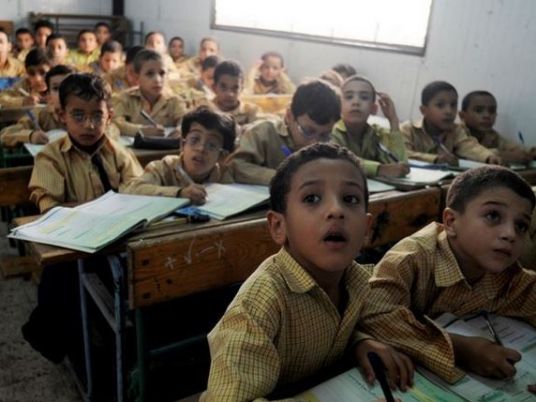Dozens of citizens in several Egyptian governorates went to notary offices to offer their signatures as a show of support for Major General Omar Suleiman, who has not nominated himself for the presidential race.
Al-Masry Al-Youm said that Daqahlia Notary Office employees on Monday were unable to authorize the citizens’ signatures because they did not have information about Suleiman that was required to complete the forms.
Rumors have spread that Suleiman, Egypt’s former intelligence chief who took was sworn in as vice president during the 18-day uprising that ousted former President Mubarak last year, plans to run in the presidential election.
On its Facebook page, a campaign in support of Suleiman said it intends to organize a massive rally on Wednesday that will march to Suleiman’s home in Heliopolis in order to call on him to apply to run. The campaign organizers said they would offer him the supporting signatures that have been collected from various governorates.
On Monday, the state-owned newspaper Al-Akhbar quoted Suleiman as saying he “cannot refuse the people’s demands,” adding that he “does not aspire to the post out of a desire for power, but rather to confirm his willingness to spend the rest of his life serving the country.” State-run Al-Ahram reported that “Suleiman will soon apply for candidacy” for the presidential election.
Presidential candidates are required to collect at least 30 signatures from members of Parliament or 30,000 notarized signatures from citizens in 15 different governorates in order to be eligible for the race. Registration must be completed by 8 April.
Most candidates, even those supported by MPs, resorted to collecting citizens’ signatures as a way to confirm their popularity on the street.
On Sunday, Mansour Hassan, a former minister during former President Anwar al-Sadat’s reign, announced his withdrawal from the presidential race. Press reports had claimed he had enjoyed the support of the ruling military junta. On the same day, the Muslim Brotherhood announced for the first time that they may nominate a member of their group to run in the presidential election.
In the statement on Sunday, the Brotherhood’s Freedom and Justice Party said it would “examine the possibility of nominating an FJP or Brotherhood leader as a candidate in the presidential elections due to the many developments taking place both internally and externally.”
A group of Muslim Brotherhood youth launched a campaign last week on Facebook to call for the nomination of Brotherhood stalwart Khairat al-Shater. Previously, the Islamist group repeatedly declared that it did not intend to run in Egypt’s presidential election.




